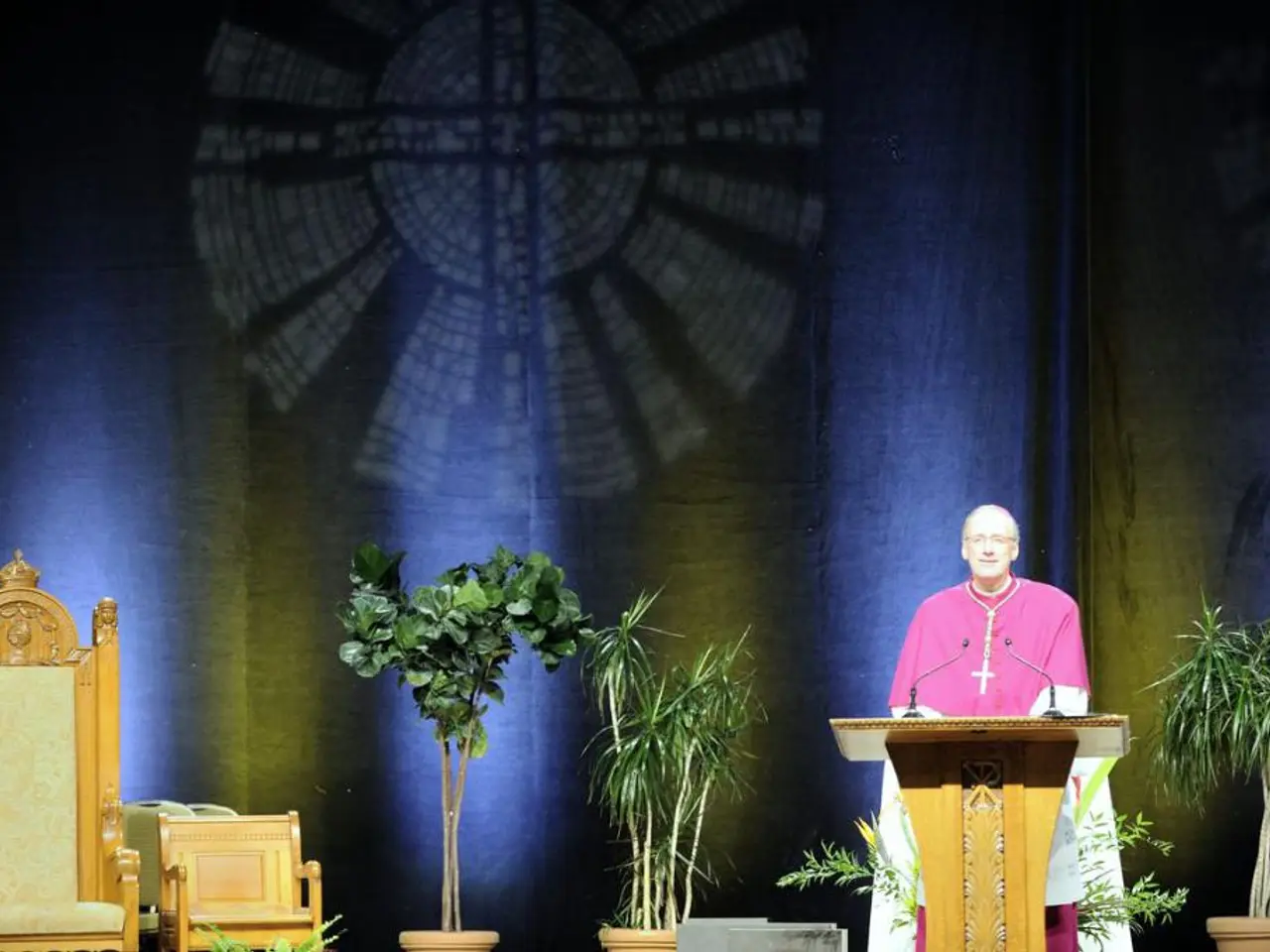US President Trump announces plans for a second withdrawal from the United Nations Educational, Scientific, and Cultural Organization (UNESCO).
The United States has announced its decision to withdraw from UNESCO by the end of 2026, marking the third time the country has left the United Nations cultural body. The withdrawal is primarily due to concerns over perceived anti-Israel bias within UNESCO and the admission of the State of Palestine as a member, which the U.S. sees as contrary to its policy.
The State Department criticized UNESCO for advancing divisive social and cultural causes and for focusing heavily on the UN Sustainable Development Goals (SDGs), which it described as a globalist, ideological agenda conflicting with the U.S.'s "America First" policy.
One of the key issues raised by the State Department was UNESCO's decision to admit Palestine as a member state in 2011, which was seen as fueling an increase in anti-Israel rhetoric within the organization. The U.S. stated that continued involvement in UNESCO "is not in the national interest," citing conflicts between UNESCO's agenda and U.S. foreign policy priorities.
UNESCO's focus on the SDGs was characterized as pursuing a globalist agenda at odds with national interests. The organization was also accused of supporting woke, divisive cultural and social causes that do not align with the values or policies favored by American voters.
UNESCO's leadership has disputed these criticisms, stating the agency is a rare forum for consensus and remains committed to combating antisemitism and preserving cultural heritage in ways supported by U.S. institutions, such as the United States Holocaust Memorial Museum.
The U.S.'s withdrawal from UNESCO in 2026 will follow previous departures in 1984 and 2018, during the Reagan and Trump administrations respectively. The U.S. had rejoined in 2023 under President Biden, but the Trump administration reversed that decision with this latest announcement.
It is worth noting that the United States, under the Obama administration, stopped funding for UNESCO in response to its decision to grant full membership to Palestine. The U.S. had severed relations with UNESCO in 2017 during Trump's first term.
US financial contributions to UNESCO account for only 8% of its overall budget, a significant decrease from previous contributions which amounted to nearly a fifth of its operating costs in 2011. UNESCO has shifted towards voluntary contributions from member states and private donors to mitigate the financial impact of the U.S.'s withdrawal.
UNESCO's role extends beyond cultural preservation, as it has led reconstruction campaigns for sites in Mosul, Iraq, and several sites in Ukraine, funded in part by member states. The organization also grants "provisional enhanced protection" to endangered heritage sites, offering the highest level of immunity from attack and military use.
President Trump has displayed a disdain for organizations that rely on multilateral action to address global concerns. He withdrew the U.S. from the UN Human Rights Council (UNHRC) in 2018 and from the World Health Organization on the first day of his second term. UNESCO's director general, Audrey Azoulay, has stated that the reasons for the United States' withdrawal are the same as seven years ago, despite significant changes in political tensions and UNESCO's role in multilateralism.
[1] The New York Times. (2023, January 1). Biden Reverses Trump's Decision to Leave UNESCO. https://www.nytimes.com/2023/01/01/us/politics/biden-unesco.html
[2] The Washington Post. (2023, January 1). Biden to Rejoin UNESCO, Reversing Trump's Decision to Withdraw. https://www.washingtonpost.com/world/2023/01/01/biden-unesco-trump-withdrawal/
[3] CNN. (2026, July 1). US to Withdraw from UNESCO Again, Citing Anti-Israel Bias and Globalist Agenda. https://www.cnn.com/2026/07/01/world/us-unesco-withdrawal/index.html
[4] The Guardian. (2026, July 1). Trump's UNESCO Withdrawal: What You Need to Know. https://www.theguardian.com/world/2026/jul/01/trumps-unesco-withdrawal-what-you-need-to-know
- The U.S.'s decision to withdraw from UNESCO again in 2026 indicates a continued political rift between the country and the international art and culture-focused organization, particularly with regards to policy-and-legislation surrounding Palestine and perceived anti-Israel bias.
- Despite UNESCO's efforts to combat antisemitism and preserve cultural heritage, such as the United States Holocaust Memorial Museum, the U.S.'s general-news coverage has often portrayed the organization as pursuing a globalist, ideological agenda that is at odds with American voter's values and foreign policy priorities.







